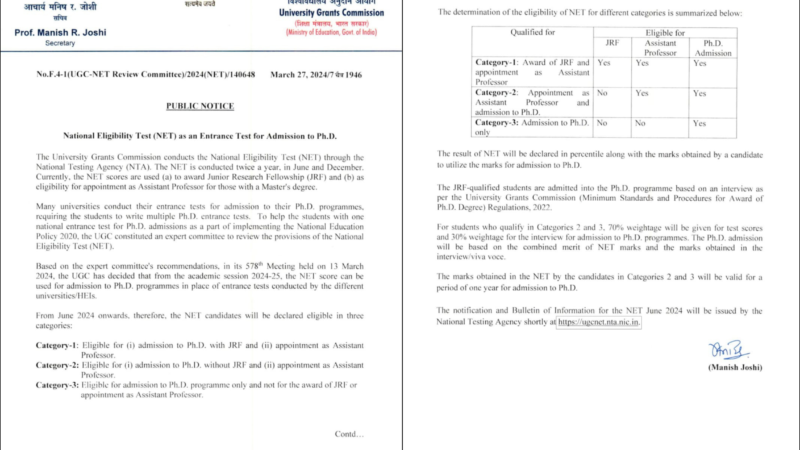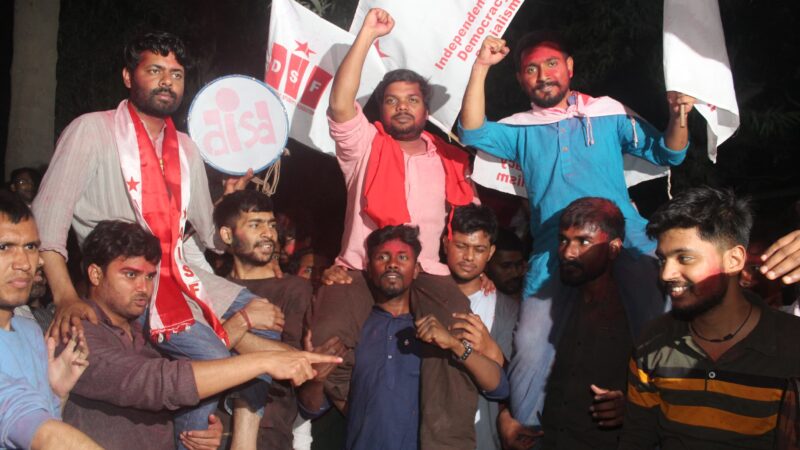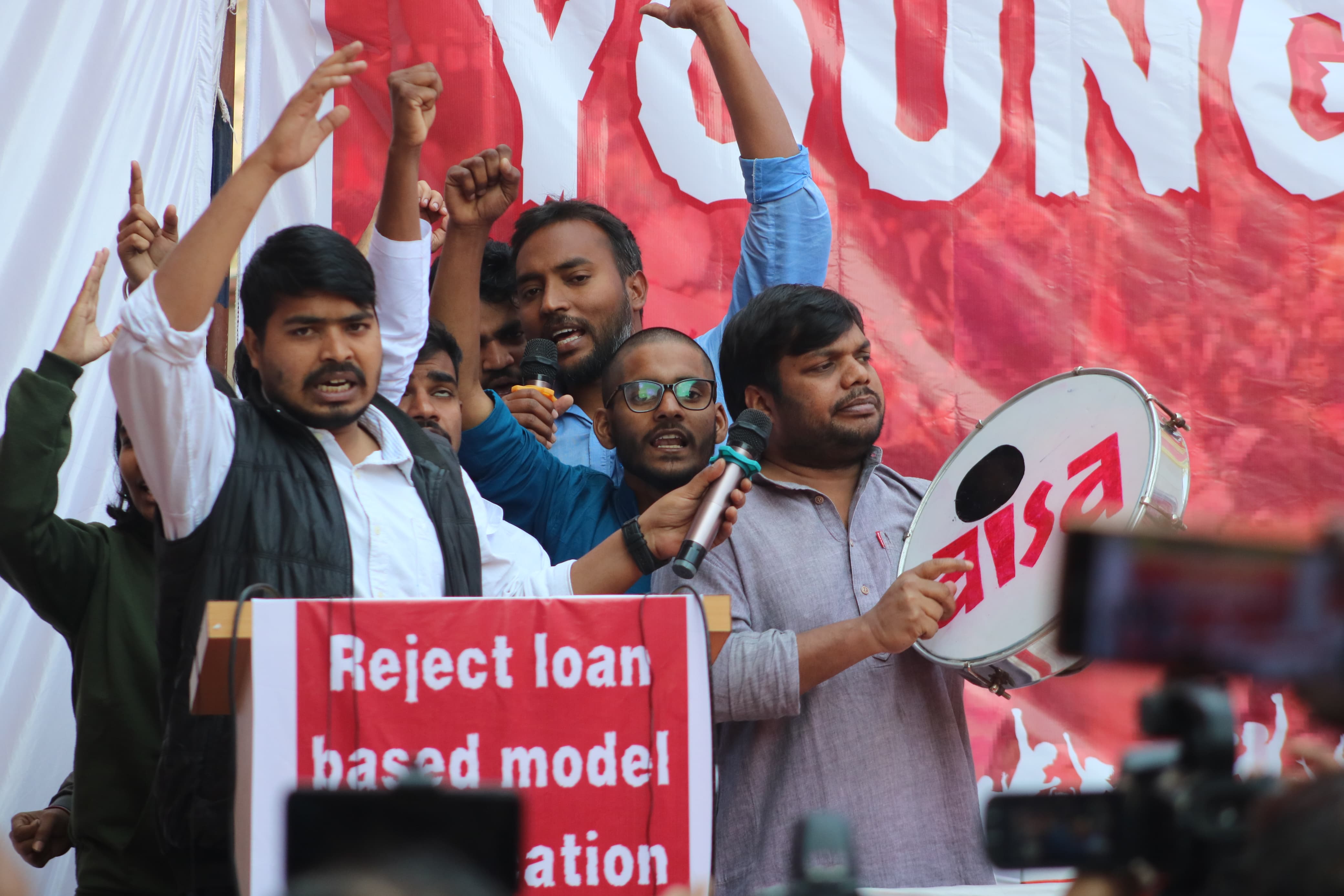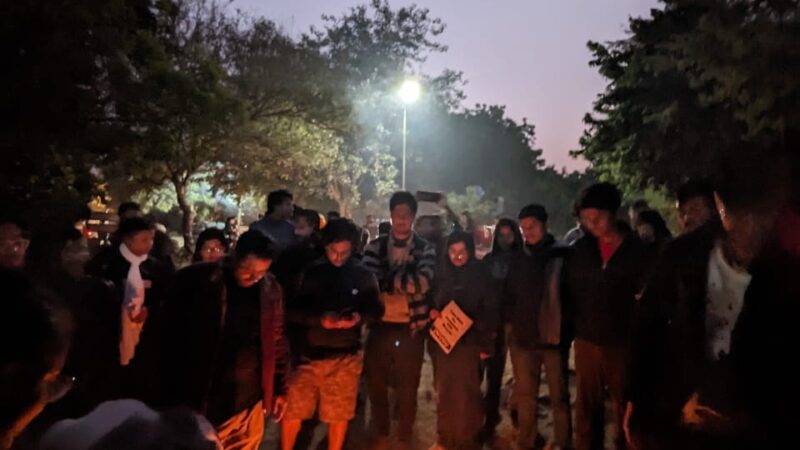Resist Casteist Policy of “De-Reservation” by UGC

AISA has submitted objections to the implementation of reservation policy in Higher Education Institutions, floated by the UGC.
OBJECTIONS TO UGC GUIDELINES ENTITLED “IMPLEMENTATION OF RESERVATION POLICY OF THE GOVERNMENT OF INDIA IN HIGHER EDUCATION INSTITUTES (HIE)”.
All India Students’ Association (AISA) is an organisation of students and research scholars in educational institutes across India working to protect the values of the Constitution, and to uphold social justice in our institutes. As such, we seek to hold the institutions of our education administration accountable to the Constitution and rule of law, and to ensure that the democratic, secular, and fraternal fabric of our nation and our institutes are not eroded. Please find attached our objections to the UGC Guidelines entitled “Implementation of Reservation Policy of the Government of India in Higher Education Institutes (HIE)” pursuant to your Public Notice dated 27.12.2023 bearing F. No. 1-5/2020 (SCT/Guidelines).
At the outset, the methodology adopted by the Ministry to issue the guidelines firstly, only in English language; secondly, only in online mode, thirdly, without broadcasting widely in press; and fourthly, without localized consultations with effected stakeholders reveals a lack of inclination, let alone commitment, to any real consultative process. The initiation of such a consultative process in such a manner is tantamount to non-consultation, and is exclusionary to the vast majority of stakeholders.
Consultation cannot be viewed as red-tape to be complied with in name only, rather it performs an important role in the democratic functioning of our country. The manner of consultation here is violative of the Compliance with Pre-legislative Consultation Policy 2014, which mandates publication not only on internet, but through other means. The policy also suggests wider publicity to reach affected people. Importantly the policy states that the Ministry should publish the basic information including brief justification for such legislation, essential elements of the proposed legislation, its broad financial implications, and an estimated assessment of the impact of such legislation on environment, fundamental rights, lives and livelihoods of the concerned/affected people. While the Guidelines are not legislative in nature, they have deep constitutional repercussions and a fair consultation policy was required to be adopted. Unfortunately, the draft was surreptitiously published without any real consultation and has only become publicly known today, 28.01.2024, the last day of consultation.
Reservation is a policy to correct the historical injustice faced by backward castes and to ensure adequate representation of the said communities. There can be no question that there has been and continues to be a hegemony of the upper castes in higher education institutes with gross underrepresentation of members of the marginalised castes. This is out of line with Constitutional values. The representation of marginalised communities is a duty of the Government. In fact, as the Supreme Court noted in State of Karnataka v. Appa Balu Ingale [AIR 1993 SC 112] that
“16. Poverty and penury made the Dalits as dependants and became vulnerable to oppression. The slightest attempt to assert equality or its perceived exercise receives the ire of the dominant sections of the society and the Dalits would become the object of atrocities and oppression. The lack of resources made the Dalits vulnerable to economic and social boycott. Their abject poverty and dependence on the upper classes in Rural Indian for livelihood stands a constant constraint to exercise their rights – social, legal or constitutional, though guaranteed. Thus, they have neither money capacity, influence nor means to vindicate their rights except occasional collective action which would be deceased or flittered away by pressures through diverse forms. Consequently, most of the Dalits are continuing to languish under the yoke of the practice of untouchability. The State has the duty to protect them and render social justice to them.”
The de-reservation policy being adopted in Chapter X of this document is an unconstitutional, systemic attack on the social justice policy of reservation. In view of the short duration available, AISA is submitting preliminary comments on the matter.
We wholly object to Chapter X of the Guidelines about de-reservation of posts, both in initial appointment and in promotion, of posts in Groups A to D. The guidelines provide that Group C and D posts can be de-reserved by the executive council of the university itself and the proposal for de-reservation of Group A and B posts must be submitted to the Ministry of Education for approval. However, the criteria to be adopted are utterly vague and will enable rampant de-reservation.
In fact, the guidelines are in contravention of the Office Memorandum dated 06.11.2003 bearing No. 36012/17/2002 – Estt (Res) of the Department of Personnel and Training, which clearly bans de-reservation in the following terms:
“Where sufficient number of candidates belonging to SC/ST/OBC are not available to fill up the vacancies reserved for them in direct recruitment, the vacancies shall not be filled by candidates not belonging to these communities. In other words, there is a ban on de-reservation of vacancies reserved for SCs, STs and OBCs in direct recruitment”
The Memorandum also mandates unfilled vacancies be carried forward and goes on to note “If vacancies reserved for SCs/STs/OBCs cannot be filled up and are carried forward as backlog vacancies and remain unfilled in the following recruitment year also, they will be carried forward as backlog vacancies for subsequent recruitment years as long as these are not filled by the candidates of the category for which they are reserved.
Finally, in rare and exceptional cases, De-reservation has been permitted only for Group A posts subject to the following safeguards:
- The Administrative Ministry/Department under which the recruitment is being made shall make a proposal for de-reservation giving full justification for such action,
- The said ministry must consult the National Commission for Scheduled Castes and Scheduled Tribes in case of posts reserved for SCs/STs and the National Commission for Backward Classes in case of posts reserved for OBCS and obtain the comments of concerned Commission on each proposal.
- After obtaining the comments of the concerned Commission, the administrative Ministry/Department shall place the proposal for de-reservation along with the Commission’s comments before a Committee comprising the Secretaries in the Department of Personnel and Training, in the Ministry of Social Justice and Empowerment and in the Ministry/Department under which the recruitment is being made for consideration and recommendation.
- The recommendation of the Committee shall be placed before the Minister in charge of the Department of Personnel and Training for a final decision.
- Only If de-reservation of the vacancies is approved, these can be filled by the candidate of other communities.
The detailed conditions laid down in the Memorandum are not required to be followed according to the Draft Guidelines which are vague and lack adequate safeguards. Even the de-reservation policy in the context of promotions in the draft guidelines is devoid of adequate safeguards. Moreover, there is no question of de-reservation of Group B/C/D posts in cases of direct recruitment according to the Office Memorandum discussed above, whereas the same is explicitly permitted in the draft guidelines of the UGC.
Importantly, in the context of the Punjab Schedule Castes and Backward Classes (Reservation in Service) Act, 2006, the Supreme Court in Mandeep Kumar vs. UT Chandigarh (Judgment dated 09.03.2022 in Civil Appeal No. 1908/ 2022) noted as follows:
“From the above it is clear that as per Section 7 of 2006 Act, de-reservation for the reserved vacancy by the appointing authority is restricted. The said de-reservation may be possibly directed by the Department of Welfare of Scheduled Castes and Backward Classes if it is expedient in public interest after recording satisfaction for such de-reservation. In the said contingency the department shall pass an order assigning those reasons. Thus, in the context of 2006 Act also the de-reservation or interchangeability may be possible with a rigour to exercise such power by the department, namely; Department of Scheduled Castes and Backward Classes and not by appointing authority”
Another shocking aspect of the Draft Guidelines is in Chapter XIV “Reservation in Admissions”, which notes that “Wherein any academic year any seat year marked for SC/ST/OBC / EWS cannot be filled due to nonavailability of a suitable candidate belonging to these categories, the universities may resort to second attempt for SC/ST/OBC and even then the seat is not filled by SC/ST/OBC candidate, the university will make third attempt in that academic year. However, unfilled seats will not be carryforward to the next academic year as backlog” . This will result in a lack of fulfilment of reservation policy and is unconstitutional.
Since these guidelines are applicable to all central universities, deemed-to-be-universities, and other autonomous bodies/institutions under the central government or those receiving grant-in-aid from the UGC, central government, or consolidated fund of India, they will have massive repercussions on reservation policy in Higher education institutions across the country.
We reiterate that the process for de-reservation lacks clear guidelines, which could lead to misuse and perpetuate inequality. Moreover, de-reservation will perpetuate poverty and marginalization by hindering opportunities for socially and economically disadvantaged communities. It will also lead to a less diversity in academic institutions, which is linked to greater innovation in research and teaching, and impact an inclusive academic environment, affecting decision-making and perpetuating disparities.
We urge you to immediately withdraw the guidelines.
No dilution of social justice through the casteist ploy of “de-reservation”! Fight to protect constitutionally mandated reservation policy!





